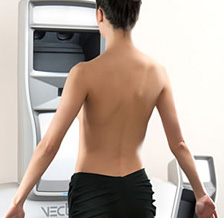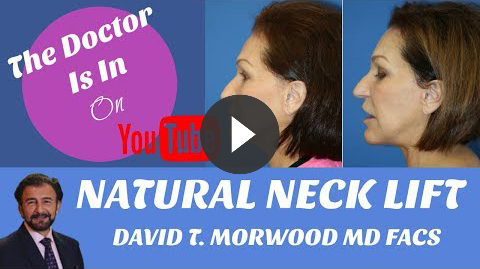Arthritis

Relief for Hand and Wrist Arthritis with Monterey Specialist Dr. David Morwood
Living with arthritis in your hands or wrists can significantly impact your quality of life—limiting your ability to work, care for yourself, or enjoy simple activities. At his Monterey, CA practice, Dr. David T. Morwood, a board-certified plastic surgeon and hand microsurgery specialist, offers personalized hand arthritis treatment plans to restore comfort, function, and independence.
Whether you’re in Monterey, Carmel, or surrounding areas, expert help is closer than you think.
Understanding Hand Arthritis
Hand arthritis refers to the degeneration or inflammation of joints in the fingers, thumbs, or wrists. This condition occurs when smooth cartilage that cushions the joints wears away, leading to stiffness, swelling, and pain. Over time, hand arthritis can interfere with basic tasks like gripping, typing, or buttoning a shirt.
There are several types of hand and wrist arthritis commonly seen in patients:
- Osteoarthritis – Age-related wear-and-tear affecting cartilage
- Post-traumatic arthritis – Occurs after injury to bones or joints
- Rheumatoid arthritis – An autoimmune disease causing joint inflammation
- Other causes – Gout, infection, or psoriasis-related inflammation
Non-Surgical Treatments for Hand Arthritis
Many patients benefit from conservative treatments that aim to reduce pain, preserve motion, and delay the need for surgery. Dr. Morwood may recommend:
- Anti-inflammatory medications or analgesics to manage pain
- Splints or braces to stabilize joints and reduce strain
- Exercises, heat therapy (e.g., paraffin wax baths), or cold therapy for swelling
- Cortisone injections for targeted, temporary relief of inflammation
- Lifestyle modifications and adaptive tools for easier daily functioning
These strategies are particularly effective during the early stages of arthritis and are often part of a custom care plan for patients seeking joint pain treatment in Monterey.
Surgical Options for Advanced Hand Arthritis
When non-surgical options no longer provide adequate relief, surgery may be the next step. Dr. Morwood performs a range of arthritis surgery procedures in Monterey, CA, tailored to your anatomy, goals, and lifestyle.
Surgical techniques may include:
- Joint fusion (arthrodesis) – Permanently fuses bones to eliminate painful motion and improve strength
- Joint reconstruction – Removes degenerated tissue and restores function with a tendon graft or synthetic implant
- Tendon repair or transfer – Often used in advanced rheumatoid cases to restore lost movement or grip
- Synovectomy or bone shaving – Removes inflamed tissue or bone spurs to protect joints and tendons
The surgical plan depends on the joints involved, the severity of damage, and how much function needs to be restored. Dr. Morwood’s experience in both plastic surgery and hand microsurgery allows him to perform precise, restorative procedures with exceptional outcomes.
FAQs About Hand Arthritis Treatments in Monterey
Who is a candidate for hand arthritis treatment in Monterey?
Ideal candidates include patients experiencing daily discomfort, reduced hand function, or visible joint deformities due to arthritis. During your consultation, Dr. Morwood will examine your hand structure, review imaging if needed, and recommend a personalized treatment plan.
Who is not a candidate for hand arthritis surgery?
Patients with uncontrolled medical conditions, active infections, or poor circulation may not be good candidates for surgery. Dr. Morwood will assess these factors and suggest alternatives if surgery is not advisable.
What happens during hand arthritis surgery?
Depending on the procedure, surgery may involve removing damaged tissue, stabilizing joints, or reconstructing the joint using grafts or implants. Most procedures are outpatient and performed under local or regional anesthesia.
What is the downtime and recovery like after hand arthritis surgery?
Recovery varies by procedure. Most patients can expect a healing period of several weeks, with sutures removed in 7–10 days and hand therapy beginning shortly after. Full recovery and improved function may take a few months.
What is the cost of hand arthritis treatment?
Costs vary depending on the complexity of your case and the procedures required. Financing is available. A detailed breakdown will be provided after your consultation with Dr. Morwood.
Why Choose Dr. Morwood for Hand Arthritis Surgery in Monterey?
Dr. David T. Morwood is one of Monterey’s most trusted plastic surgeons for reconstructive hand procedures. His training in hand microsurgery and aesthetic precision gives patients access to highly specialized care. From treating degenerative joint disease to performing complex carpal tunnel repairs, Dr. Morwood’s approach balances function, aesthetics, and long-term relief.
- Learn more about our full range of hand surgery services.
- Visit here to meet Dr. Morwood and learn more about the practice.
Schedule a Hand Arthritis Consultation in Monterey, CA
If you’re living with pain, stiffness, or loss of hand function, don’t wait for symptoms to worsen. Contact our office today to schedule a personalized consultation with Dr. Morwood and take the first step toward long-term arthritis relief and improved hand function. Visit our contact page or call (831) 646-8661 to book your appointment.












